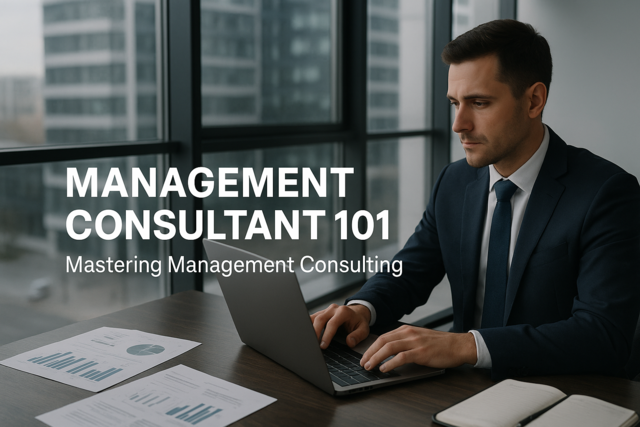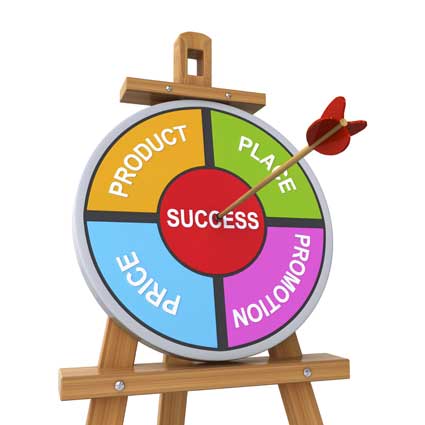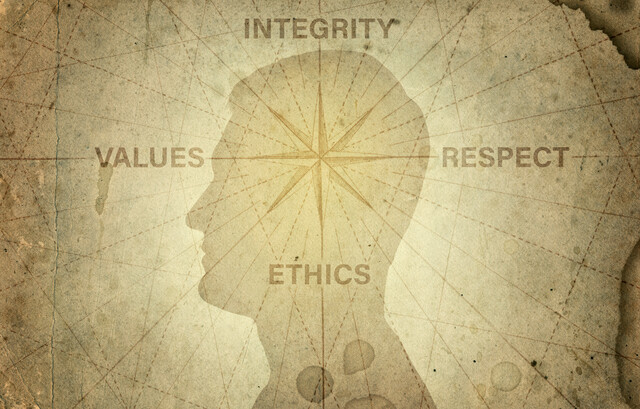The old adage of your company is only as strong as its people is evident nowhere better than in your call center, an extension of support for your customer. In recruiting call center agents, there are several key competencies to look for.
Competencies
Key competencies in your call center agent include:
|
� university or college level education ideally; � ability to speak and think clearly and communicate articulately; � proficiency in use of telephone, Web, and Internet systems; � ability to learn quickly. |
When you are hiring for your call center agent, there are key attributes that you will want your call center agents to have.
Call center agents must be:
� punctual;
� responsive;
� pleasant;
� flexible;
� professional;
� patient;
� prepared.
Key Attributes for Supervisors
Call center supervisors must be:
� leaders;
� strategic thinkers;
� articulate;
� punctual;
� responsive;
� pleasant;
� flexible;
� professional;
� patient;
� prepared.
Working with Stakeholders
Stakeholders have vested interests in call centers and hence working with them requires professionalism and a polished touch, based on savvy awareness and careful customer relationships. Stakeholders can be demanding at times, but through careful planning and processing, you can navigate through unsteady waters and align your values together.
Traits of an Ideal Agent
The ideal call center agent has all the attributes and key competencies listed previously. In addition, he or she is a self-starter who is motivated and willing to learn and who enjoys competition and wants to be an outstanding performer.
Recruitment
Sourcing for Candidates
Where do you look for your candidates? Sourcing for candidates includes social media, job boards, community centers, employee referrals, job fairs, and colleges and universities.
Social Media
Increasingly today, employers are finding their best employees through social media, as potential employees post their resumes or find job listings via Facebook, Twitter, and other outlets.
Job Boards
Job boards can also be a valuable place for posting positions and finding new candidates.
Community Centers
Local community centers are also helpful in finding new candidates.
Employee Referrals
You can find employees also through agent referrals or company-wide referrals.
Job Fairs
Many call centers attend job fairs to offer positions.
Colleges and Universities
Call centers often find their best recruits from students because they are articulate, well-educated, and take flexible hours. However, their course of study usually takes precedence over their jobs.
A call center agent interview process must be formally set up and involve several aspects. After a candidate has sent in a resume and cover letter, the next meeting will involve a phone screen.
Phone Screen
A phone screen is essential to the interview of a call center agent because most of his or her work will be conducted on the phone. There are three primary things to check for: clarity in speech, positivity, and confidence.
Clarity in Speech
Is your potential candidate easy to understand on the phone? Can you follow his or her speech without confusion? Does the language flow smoothly and clearly? These are some basic questions to consider.
Positivity
Is your potential candidate positive? Do you enjoy the sound of his or her voice?
Confidence
Is your potential candidate confident on the telephone? Lack of confidence is not helpful in a call center agent and a red flag for concern.
Behavioral Interview
In your behavioral interview, consider your potential candidate in light of potential situations. Ask questions that pertain to "what" and "if" questions to gauge how this person would react.
You may find the need for both individual or panel interviews for call center agents. The complexity of your interview format depends on your industry, company, and your center's specific goals. Hire motivated people, train skills to perform their jobs superbly, and create an environment for them to flourish and be themselves.
The employees of your company that are interviewing potential candidates for call center positions must be comprehensively trained in interviewing: the process, structure, expectations, requirements, and evaluations.
Involve frontline supervisors
Be sure to include frontline supervisors in your interview process. These are the people who will be managing all the newly hired agents.
Involve trainers
Be sure to involve trainers so that they can fully understand the kinds of agents that you are looking for and the labor pool that you are drawing from.
Role Playing
Role playing can be very helpful in gaining perspective about job roles within the context of the company for the call center agent, supervisor, trainer, chief executive officer, stakeholder, and customer.
Doing this exercise can be very insightful in bringing up potential concerns.
Hands-on Tour
You will want to lead your potential employees through a tour of your facilities so that they can see where they will be working, with whom they will be working, and what they will be doing.
Job Shadowing
You can let your new agents shadow another employee and tour the work environment to ensure that they fully understand their job duties and how things are done most efficiently and effectively.
Call Center Simulation Recruiting Software
Many large call centers offer simulation recruiting software, both for in-house call center agents and work-at-home agents. This enables you to have a consistent professional and streamlined introduction for your potential hired employees. Another aspect of this software is that it includes training for recruitment designed by a centralized office in your company, thus ensuring the use of standard protocols and methods for professional decision-making.
Team Culture
Asking, not Telling
This means that people ask questions instead of simply dictating orders. Asking questions opens up dialogue and fosters trust.
Empowering Others
How do you empower others and why? Empowering people makes them feel good about themselves. It also helps them feel strong enough to take action on critical measures.
Empowered people act positively. Empowering people involves listening to them, showing confidence in their abilities, and entrusting them with the tools and structure to be successful.
The Right Business Partners
Conflict is essential to human nature; but a professional and highly skilled call center manager, supervisor, trainer, and agent can work together very constructively. There are four important steps to this process:
� Corral discussions into constructive areas. It is important to direct discussions into constructive areas so that the focus is on solution and resolution.
� Bias toward action, not information. Most call centers require immediate action and not simple data collection. Be willing to act.
� Develop departmental leadership and a customized approach. Departmental leadership enables you to offer a customized approach if you take the time and effort to do so.
� Show, don't tell. Train your staff and communicate with your team by showing what needs to be done instead of simply talking about it.
Team Building
What Makes a Group of People a Team?
Chances are, many of you have participated on a team. The team concept is not new. People have been working together as teams for many years. The emergence of teams in business and other organizations, however, is a relatively new development.
The Characteristics of a Team
Common Goals
This is probably as important as any other characteristic. A team exists to accomplish goals and objectives of an organization in an effective way. To reach goals, team members must view them in the same way. You must view goals as desirable and achievable. If you do not, your level of commitment and effort is insufficient.
Mutual Support and Assistance
You must realize that you succeed only by working as a team. If you do not see a requirement for mutual support and assistance, there may not be a need to have a team.
Role Definition
This is a key characteristic. Too often, too many people want to be the leader or everyone wants to perform the same tasks. The role that you fulfill is often dynamic. You need to be willing and able to do different things at different times.
Identification with Each Other
When you identify with your team members, a visitor observing your organization can pick out the members of your team. This occurs because of the frequent interaction that produces good (or bad) team chemistry.
Stability
If team members are constantly changed, a disruptive environment results and goals are negatively impacted.
Reward and recognition
Lack of a fair reward and recognition system is a primary failure mode for the team. Most organizations still compensate individuals, not teams. An effective reward and recognition system must include an "all for one and one for all" element. However, team activities should be evaluated and compensated collectively. These team characteristics are challenging and are not established overnight. You need to work at it, but the results are worth the hard work.
Assembling the Project Team
The proper creation of a call center team is essential. Be on guard for behaviors or beliefs that may indicate that you do not have the correct people on your project team. When a team member displays functional loyalty, that person emphasizes the importance of his or her department role or activity at the expense of project goals. There may also be goal conflict as a team member does not believe in and support a project goal.
Other indicators that you have a wrong person on your project team include role conflicts and power struggles; schedule conflicts, such as being too busy with other things; insufficient technical capability; and an unwillingness to be a team player (puts "me" first).
A project manager often has no control over establishing a project team. It is very possible and even probable that initially, you have no choice but to accept the wrong people. It is sad but true that there are not many "dream team" members waiting to be asked to join project teams.
Project Team Membership
An organizational structure of a project team exists in a variety of ways. A typical structure is to have a core team in addition to temporary team members.
Core Team Members
Core team members, often full-time employees, are associated with a project from project conceptualization and definition to project closure. Depending on the nature and duration of the project, identification and loyalties of team members vary.
Temporary Team Members
Temporary team members are "drafted" on an as-needed basis. Define their involvement at the beginning of the project. Trying to direct the activities of these individuals is often difficult because of conflicting priorities. A popular trend is to use contract employees or consultants in these roles due to lack of availability of internal resources.
The Right People for Your Project
What team member characteristics would you find on an ideal project team?
Members understand and are able to fulfill project role responsibilities. Members make another team member's problem their problem also. This illustrates mutual support and demonstrates leadership.
Team members also exercise self-control. They know what is expected, based on project deliverables. They monitor what takes place and is about to happen, and they take action to minimize adverse effects. They also proactively communicate. Communicating at the right time becomes a norm.
The Team-building Processes
Ask these three questions to guide your team-building process:
� How are we performing?
� What do we do well and what needs to improve?
� What needs to happen so that we improve?
Team-building is defined as any activity that helps a group of people see the value of working together. It is a coordinated and collaborative effort. Involve your team members in your project planning process as a team-building activity. This provides multiple benefits, including a better plan, obtaining buy-in, and giving team members a chance to work together on something of great significance.
Review the following for additional team-building benefits:
� Increased trust between team members and the project leader.
� Improved communication (quality and honesty).
� Increased commitment.
� Increased self-directed aspects of the team.
� Increased team readiness for problem-solving.
� Increased comfort in decision-making.
Team-building should occur continuously during the duration of a project. While team-building intensity is high during the early stages of team formation, its emphasis can also be great during later periods
People are continuously faced with new situations and go through physical, psychological, and emotional changes. A need to instill solidarity or maintain togetherness never goes away.




























